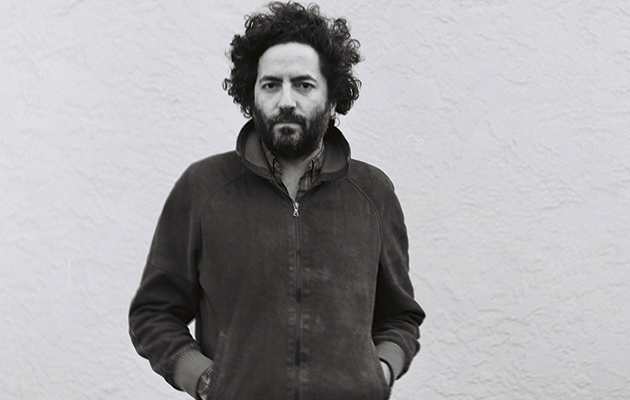Dan Bejar’s 19-year climb from lo-fi-bedroom obscurity to wider acclaim was slowed somewhat by the defiantly abstruse nature of his early recordings. But over time, before the soft grandeur of his 2011 breakout, Kaputt, at least, the Vancouver native began embedding tantalising nuggets of a more welcoming song-form amid the distancing Dadaisms and abstractions that dominated his albums
These tracks, primarily inspired by arty ’70s British acts including Bowie, T. Rex, Roxy Music, Eno, John Cale and Mott The Hoople, are what Bejar refers to as “street rock”. Memorable examples of this impulse are scattered through the 42-year-old iconoclast’s thick body of work all the way back to 2001’s Streethawk: A Seduction, the fifth Destroyer album but the first predominantly listenable one. It’s thrillingly evident in the propulsive swagger of “Jackie, Dressed In Cobras” from the New Pornographers’ second album, 2005’s Twin Cinema, and “Myriad Harbor” from their 2007 LP Challengers, recordings so masterfully conceived and executed it seems downright perverse that Bejar’s mined this rich vein so infrequently. But on Poison Season, Bejar re-embraces street rock, and recontextualises it as well.
Kaputt, dreamed up in the thrall of Avalon and quieted by a major life-change, the birth of his son, revealed a more measured Bejar, easing himself into soft-rock reveries and setting aside his obscurant tendencies in favour of couched but discernible emotion. These tendencies spill over into the new album. The Kaputt lineup – including the production team of guitarist David Carswell and bassist John Collins – is unchanged except for the addition of versatile drummer/percussionist Josh Wells. But on Poison Season, they’re joined by a five-piece string section, which brings a symphonic lushness to the bookends, two stately versions of “Times Square, Poison Season”, the first a wistful piece redolent of 1940s film music, over which Bejar establishes his subtly altered vocal persona, which is warmer, closer and precisely enunciated.
The prelude is forcefully shoved aside by a fanfare of brass and pummeling drums, and we’re suddenly transported to Springsteen’s turf as we follow two “lovers on the run” whose hyper-romantic idyll is rudely interrupted by the dawn of a new day. Only Bejar could come up with the payoff line, subverting George Harrison’s most uplifting refrain with “Oh shit, here comes the sun”. The following “Forces From Above” unfolds with carefully arranged Baroque strings, but the track shifts in feel and dynamic as the rhythm section and horns take over. Here, Bejar and the band seem to be taking their cues from Henry Mancini’s 1960s film scores, as the soaring strings, blaring horns and thumping congas careen toward the rousing climax.
“Hell”, “The River” and “Girl In A Sling” are of a piece, the strings, horns and Ted Bois’ piano, which functions as the album’s foreground instrument, playing off each other with an uptown cool that is downright Ellingtonian.
“Times Square” sits in the dead centre of the 13-track sequence, its strutting groove supplied by a “Walk On The Wild Side”-like acoustic guitar and sax, while the lyrics second that emotion with the lines “Judy’s beside herself/Jack’s in a state of desolation/The writing on the wall isn’t writing at all/Just forces of nature in love with a radio station”, wryly referencing the Velvets’ “Rock And Roll”. It’s a clever Lou Reed lift, and Bejar comes to it casually and affectionately. “Archer On The Beach”, radically altered from the one-off 2010 original, is a laidback big-band nocturne on the order of Steely Dan’s Aja.
Two string-laden songs later, on “Bangkok”, the group take us on a stone soul picnic, Laura Nyro and Todd Rundgren slow-dancing amid the flickering lights of a sultry summer night in Manhattan. Then, the free-jazz squall of “Sun In The Sky” gives way to the third and final take of “Times Square”, Bejar bringing increased nuance to the lyrics over the end-title theme, as this Zen archer lets fly with his second straight bull’s eye.
QA
Dan Bejar
The new LP is loaded with classic-rock references. What made you go there?
It’s always been Destroyer’s comfort zone. That is the music that got me out of the basement, and into trying to sing in a rock’n’roll band, in 1997. For some reason I recently started to revisit those early-’70s records that were so pivotal to me in the late ’90s, mostly sparked by the song “Where Are We Now” by David Bowie. It made me think about him for the first time in a long time, and sonically it is definitely a major inspiration for Poison Season.
The sonic idea behind the album seems to be the juxtaposition of heavily arranged elements with a rock band playing live off the floor.
They were two very separate recording sessions done quite far apart, physically, spiritually, etc. So the mystery of the record – and it seems to me art needs a mystery – was how they could possibly live together and interact. To me, the tension created by the two approaches sitting side by side, or even butting up against each other within the same song, went from being a source of great worry to being one of the things about the album that I am most enjoying.
You’ve made two welcoming albums in a row. What’s up with that?
The absence of complete severity in Poison Season is a major fuck-up. But in the end I am always a slave to melodies and a certain kind of cinematic lift. Prefab notions of redemption, which maybe, someday, I will exorcise myself of.
INTERVIEW: BUD SCOPPA
The History Of Rock – a brand new monthly magazine from the makers of Uncut – a brand new monthly magazine from the makers of Uncut – is now on sale in the UK. Click here for more details.
Uncut: the spiritual home of great rock music.



